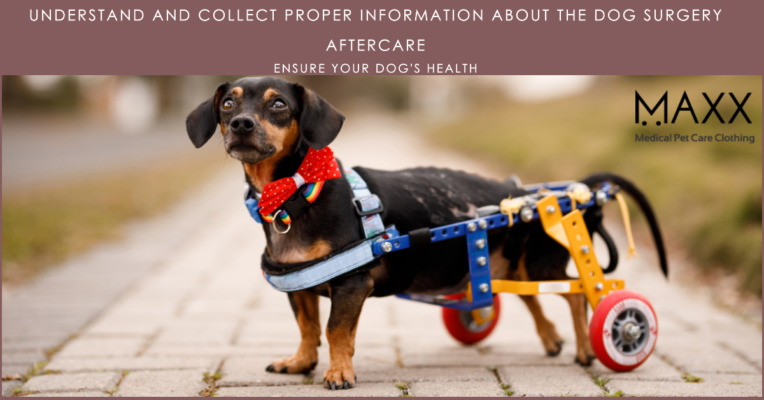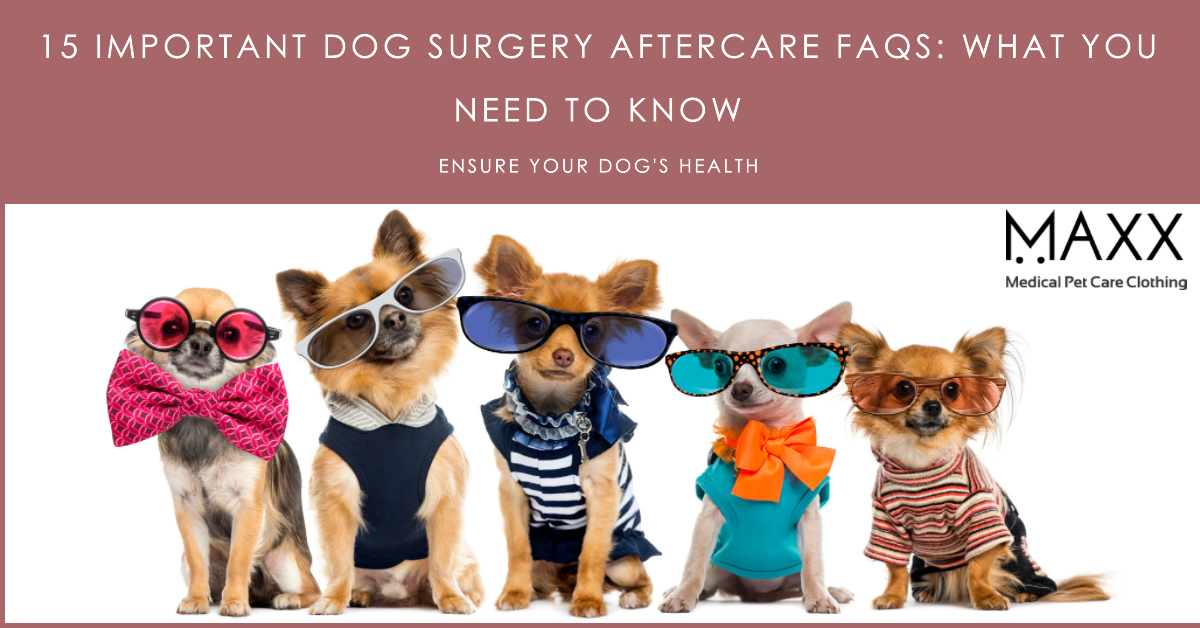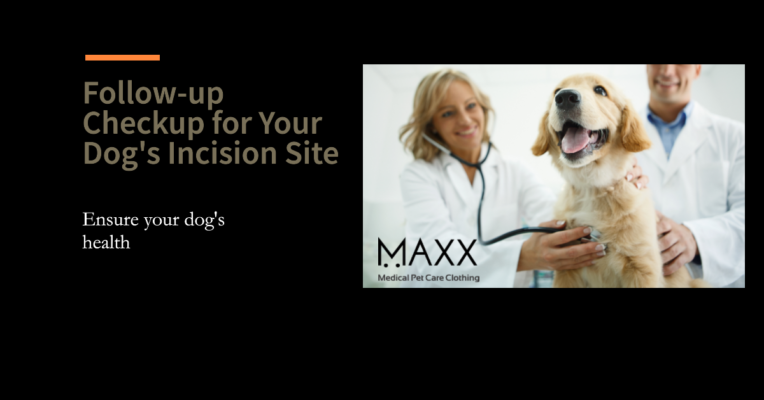MAXX Pet Blogs
15 Important Dog Surgery Aftercare FAQs: What You Need to Know
Dog Surgery Aftercare FAQs: What You Need to Know
When your furry companion undergoes surgery, it’s crucial to follow proper aftercare procedures to ensure a speedy and successful recovery.
However, as a pet owner, you may have several questions regarding what to expect after the surgery.
In this article, we will answer some frequently asked questions about dog surgery aftercare.
Table of Contents
- What should I expect after my dog’s surgery?
- How long does the recovery process take?
- What kind of care does my dog need after surgery?
- How do I monitor my dog’s recovery progress?
- When should I contact the vet?
- What should I feed my dog after surgery?
- How do I administer medication to my dog?
- Can my dog play or exercise after surgery?
- How do I prevent my dog from licking the incision site?
- When can I bathe my dog after surgery?
- How do I clean my dog’s incision site?
- How do I prevent my dog from jumping or climbing?
- How do I prepare my home for my dog’s recovery?
- Can my dog get a follow-up checkup?
- How can I ensure my dog’s post-surgery comfort?
What should I expect after my dog’s surgery?
After your dog’s surgery, you can expect them to be drowsy and disoriented due to the anesthesia.
It’s important to keep them warm and comfortable in a quiet and secure space to allow them to rest and recover.
They may also have a bandage or a Surgical pet shirt on the bandage to prevent them from licking the incision site.
How long does the recovery process take?
The recovery process varies depending on the type of surgery and the dog’s health condition.
Generally, it takes two to three weeks for the incision site to heal completely, but it may take longer for larger incisions or more complicated surgeries.
What kind of care does my dog need after surgery?
Your dog needs a lot of rest and relaxation after surgery, as well as proper wound care and medication.
You should also monitor their eating and drinking habits to ensure they’re getting enough nutrition and hydration.
How do I monitor my dog’s recovery progress?
You should monitor your dog’s incision site daily for any signs of redness, swelling, or discharge.
You should also keep an eye on their eating, drinking, and bathroom habits, as any changes may indicate an issue.
When should I contact the vet?
You should contact your vet immediately if you notice any unusual behavior or symptoms, such as vomiting, diarrhea, lethargy, or fever. You should also contact them if you have any concerns or questions regarding your dog’s recovery.
What should I feed my dog after surgery?
Your vet will recommend a specific diet for your dog based on their health condition and the type of surgery they underwent.
Generally, your dog should have a bland diet of boiled chicken and rice or a prescription diet for the first few days after surgery, then gradually transition back to their regular diet.

How do I administer medication to my dog?
You should follow your vet’s instructions for administering medication, whether it’s oral medication or topical ointment.
Make sure to give the correct dosage at the right time, and use any necessary tools, such as a pill pocket or syringe, to make the process easier.
Can my dog play or exercise after surgery?
Your dog should avoid any strenuous activity or exercise for at least two weeks after surgery to allow their body to heal properly.
Your vet may recommend short, light walks to help them stretch their legs and maintain their muscle tone.
How do I prevent my dog from licking the incision site?
Your dog may have a bandage and a Surgical pet shirt on the bandage to prevent them from licking or chewing on the incision site, as this can cause infections or delay the healing process.
You can also distract your dog with toys or treats to prevent them from focusing on the incision site.
When can I bathe my dog after surgery?
You should avoid giving your dog a bath for at least 10-14 days after surgery to prevent any water or soap from getting into the incision site. Your vet may recommend using a damp cloth or unscented baby wipes to clean your dog in the meantime.
How do I clean my dog’s incision site?
Your vet will give you specific instructions on how to clean and care for your dog’s incision site.
Generally, you should keep the area clean and dry, and avoid using any harsh chemicals or substances.
You may need to clean the site with a gentle, antiseptic solution and apply antibiotic ointment to promote healing.
understand and collect proper information about the dog surgery aftercare
How do I prevent my dog from jumping or climbing?
Dog surgery aftercare: your dog may have limited mobility and may need to be kept in a small and secure area to prevent them from jumping or climbing.
You can also use baby gates or barriers to restrict their movement and provide a comfortable and safe space for them to rest.
How do I prepare my home for my dog’s recovery?
Before bringing your dog home from surgery, you should prepare a comfortable and safe space for them to rest and recover.
This may include setting up a cozy bed, providing plenty of water and food, and removing any potential hazards or obstacles that could cause injury.
Can my dog get a follow-up checkup?
Your vet may recommend a follow-up checkup to ensure your dog’s incision site is healing properly and to address any concerns or issues.
You should also schedule regular checkups and vaccinations to maintain your dog’s overall health and wellbeing and to properly understand the dog surgery aftercare procedures.
How can I ensure my dog’s post-surgery comfort?
To ensure your dog’s comfort after surgery, you can provide plenty of love, care, and attention.
You can also use comfort items, such as a favorite toy or blanket, to provide a sense of familiarity and security.
Additionally, you can use natural remedies, such as aromatherapy or massage, to help soothe and calm your dog.
In conclusion, caring for your dog after surgery requires patience, diligence, and a lot of love.
By following proper dog surgery aftercare procedures, you can ensure your dog’s speedy and successful recovery, and provide them with the comfort and care they need to get back to their happy and healthy selves.


